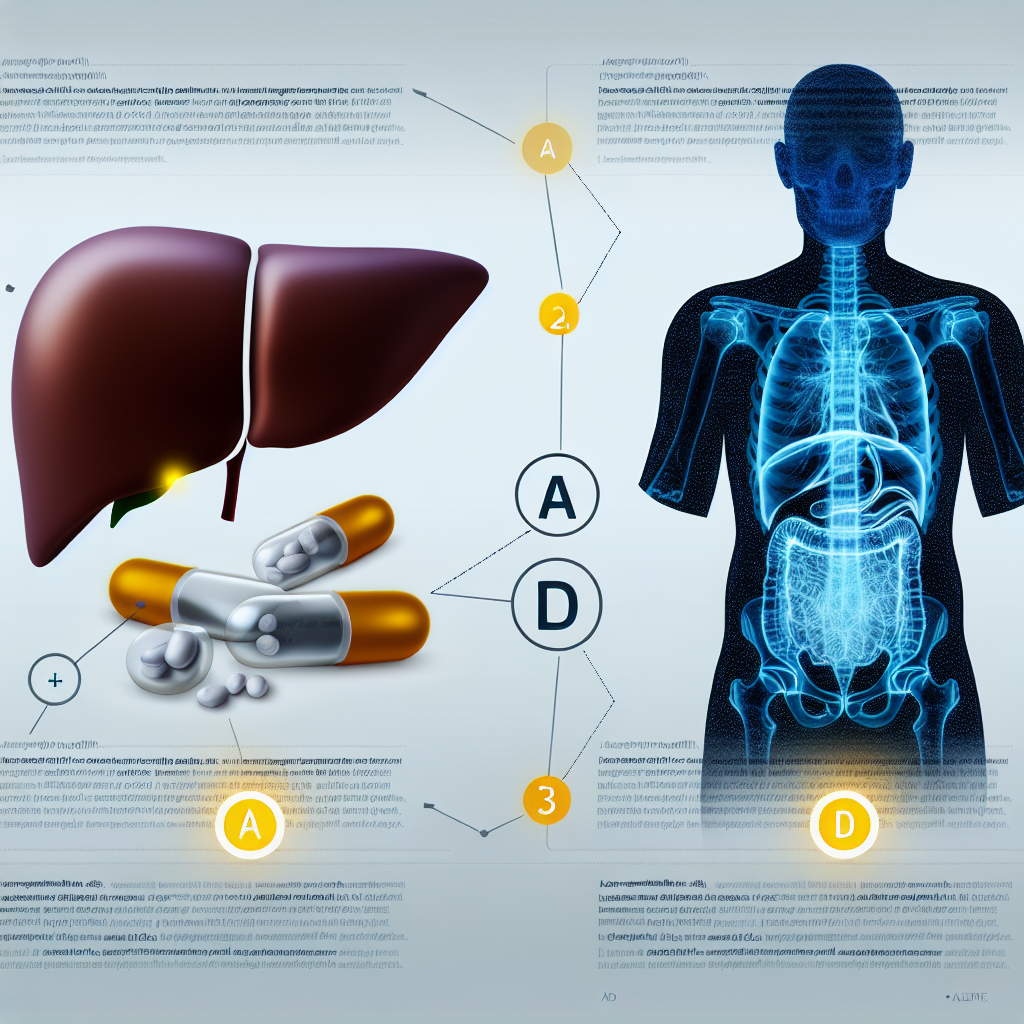Did you know that Vitamin A and D3 are two of the most essential nutrients for your body’s overall health and functionality? From bolstering your immunity to strengthening bones, these powerhouse vitamins play critical roles in keeping you energized and thriving.
Whether you’re curious about how to improve your diet, exploring supplementation options, or simply looking to maximize your wellness routine, understanding the synergy between Vitamin A and D3 could be the key to unlocking better health. Let’s dive in and discover everything you need to know about these vital nutrients.
What is Vitamin A and Why is It So Important?
The Benefits of Vitamin A
Vitamin A is widely known as the "vision vitamin," but its role in your body goes far beyond eyesight. This fat-soluble nutrient contributes to:
- Eye Health: Supports good vision and prevents night blindness.
- Immune System Function: Helps your body produce white blood cells to protect against infections.
- Skin Care: Plays a central role in skin repair, regeneration, and renewal, making it a favorite in anti-aging products like retinoids.
- Cell Growth: Encourages the growth and maintenance of healthy tissues and organs.
Best Food Sources of Vitamin A
Getting Vitamin A from foods is easier than you think. It’s found naturally in:
- Animal-Based Sources: Eggs, beef liver, and dairy products like cheese and fortified milk.
- Plant-Based Sources: Carrots, sweet potatoes, kale, spinach, and other leafy greens rich in beta-carotene (a plant pigment your body converts into Vitamin A).
Pro tip: Add roasted carrots or a sweet potato mash to your meals—you’ll not only elevate the flavor but give your body a Vitamin A boost!
Signs of Vitamin A Deficiency
If your diet is lacking Vitamin A, symptoms may include trouble seeing at night, dry or irritated skin, and frequent infections due to weakened immunity. While this deficiency is uncommon in developed countries, it’s worth addressing through dietary improvements or supplements if needed.
What is Vitamin D3 and Why Do You Need It?
The Power of Vitamin D3
Unlike most vitamins, Vitamin D3 is synthesized when sunlight hits your skin, earning it the nickname "sunshine vitamin." It’s essential for:
- Bone Health: Facilitates calcium absorption to strengthen bones and prevent fractures.
- Immunity: Activates your immune system to defend against illnesses.
- Mood Regulation: Linked to improved mood and reduced risk of seasonal affective disorder (SAD).
Where to Find Vitamin D3
If you’re not getting enough sunlight—or it’s winter when the sun is limited—you can turn to these sources:
- Fatty Fish: Salmon, mackerel, or tuna are excellent options.
- Eggs: Perfect for breakfast and a daily dose of D3.
- Fortified Foods: Plant-based milk, cereal, and orange juice often come fortified with Vitamin D3.
If you’re indoors for long hours, or living in a region with little sun exposure, consider a Vitamin D3 supplement to keep your energy and immunity in check.
Symptoms of Vitamin D3 Deficiency
A Vitamin D3 deficiency can lead to symptoms such as brittle bones, muscle weakness, fatigue, and even depression. In severe cases, it may increase the risk of conditions like osteoporosis. Prioritizing Vitamin D-rich foods, supplements, or sunlight exposure can help offset deficiency risks.
The Synergy Between Vitamin A and D3: Why They Work Better Together
How Vitamin A and D3 Complement Each Other
Vitamin A and D3 don’t just work independently—they form a stellar health team when combined. They both enhance immunity, but Vitamin D3 strengthens bones by regulating calcium, while Vitamin A supports tissue health for healthier joints and organs. Additionally, their anti-inflammatory properties make them a great duo for improving skin conditions.
Using Multivitamins with Vitamin A and D3
Many high-quality multivitamins include both Vitamin A and D3, highlighting their joint benefits for overall wellness. These can be particularly helpful for individuals who struggle to get adequate nutrition from food alone.
Risks of Overconsumption
Moderation is key. Excessive intake of either nutrient can lead to toxicity. For example:
- Vitamin A: Overconsumption can cause nausea, dizziness, or even liver damage.
- Vitamin D3: High doses may lead to hypercalcemia (too much calcium in the blood), which can harm the kidneys.
To stay safe, consult a healthcare provider to determine the right dosage based on your age, lifestyle, and specific health needs.
Choosing Quality Supplements: A Guide to Better Nutrition
How to Find Reliable Options
When selecting supplements, prioritize brands known for transparency and third-party testing. Look for products without harmful fillers and opt for formulations that clearly list their Vitamin A and D3 concentrations.
Who Can Benefit Most from Vitamin A and D3 Supplements?
While most individuals can meet their Vitamin A and D3 needs through diet and sunlight, some groups may need supplements, including:
- Vegans and Vegetarians: They may lack direct sources of these vitamins in their diets.
- People with Limited Sun Exposure: For example, office workers or those living in northern climates.
- Older Adults: Nutrient absorption tends to decrease with age, making supplementation more beneficial.
If you’re unsure whether supplements are right for you, check with your doctor or a registered dietitian for personalized guidance.
Conclusion: Unlock the Benefits of Vitamin A and D3
The combination of Vitamin A and D3 is nothing short of transformational for overall health and wellness. While Vitamin A enhances vision, immunity, and skin health, Vitamin D3 strengthens bones, improves mood, and keeps your immune system running smoothly. Together, they form a powerful duo that supports your body in countless ways.
A balanced diet packed with vibrant vegetables, healthy proteins, and fortified foods should meet most of your nutritional needs. For those needing an extra boost, supplements can act as the perfect safety net—just be sure to prioritize quality and follow professional advice on dosing.
So, start small—you can add Vitamin-rich foods to your meals, spend a little extra time soaking in the sun, and consider a multivitamin if needed. Embrace the benefits of Vitamins A and D3 today for a healthier tomorrow.
